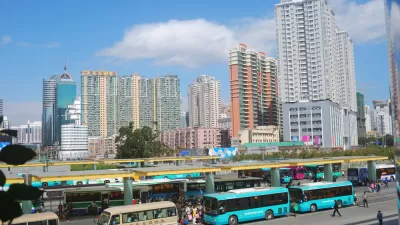The Metropolitan Council has released "The Twin Cities Regional Forecast to 2040: Steady Growth and Big Changes Ahead" to provide a foundation for coordinated planning by the Metropolitan Council and local governments.

Metropolitan Council research staff presented updated regional forecasts to the council at a recent meeting. "The Twin Cities Regional Forecast to 2040: Steady Growth and Big Changes Ahead" completes a regular update of population, households, and jobs in the region until 2040. Regular updates incorporate changes in national forecasts and current assumptions, as well as the most recent data.
The regional forecast shows the Twin Cities region will gain 888,000 residents between 2010 and 2040, a slightly higher population than the previous forecast, bringing the region's population to 3,738,000 by 2040. That total would be equivalent to 57 percent of the state’s population. Most growth will result from natural growth (i.e., more births than deaths). The Twin Cities region will also continue to gain residents through international immigration.
The region will add 495,000 jobs between 2010 and 2040, with more rapid growth in the 2010s and a slower pace in the 2020s and 2030s. Forecasts indicate the region will become more racially and ethnically diverse as well as older. The aging of the population is expected to significantly reshape the housing market, and household sizes will continue to decline. By 2040, one-person households will account for one-third of all households in the region. The population's share of people of color in 2040 will be 39 percent. The number of working-age residents of color will more than double, combined with a near-doubling of children and young adults of color. This will have significant implications for the region's future work force and school enrollments.
FULL STORY: The Twin Cities Regional Forecast to 2040: Steady Growth and Big Changes Ahead

Maui's Vacation Rental Debate Turns Ugly
Verbal attacks, misinformation campaigns and fistfights plague a high-stakes debate to convert thousands of vacation rentals into long-term housing.

Planetizen Federal Action Tracker
A weekly monitor of how Trump’s orders and actions are impacting planners and planning in America.

In Urban Planning, AI Prompting Could be the New Design Thinking
Creativity has long been key to great urban design. What if we see AI as our new creative partner?

Portland Raises Parking Fees to Pay for Street Maintenance
The city is struggling to bridge a massive budget gap at the Bureau of Transportation, which largely depleted its reserves during the Civd-19 pandemic.

Spokane Mayor Introduces Housing Reforms Package
Mayor Lisa Brown’s proposals include deferring or waiving some development fees to encourage more affordable housing development.

Houston Mayor Kills Another Bike Lane
The mayor rejected a proposed bike lane in the Montrose district in keeping with his pledge to maintain car lanes.
Urban Design for Planners 1: Software Tools
This six-course series explores essential urban design concepts using open source software and equips planners with the tools they need to participate fully in the urban design process.
Planning for Universal Design
Learn the tools for implementing Universal Design in planning regulations.
Gallatin County Department of Planning & Community Development
Heyer Gruel & Associates PA
JM Goldson LLC
City of Camden Redevelopment Agency
City of Astoria
Transportation Research & Education Center (TREC) at Portland State University
Jefferson Parish Government
Camden Redevelopment Agency
City of Claremont




























